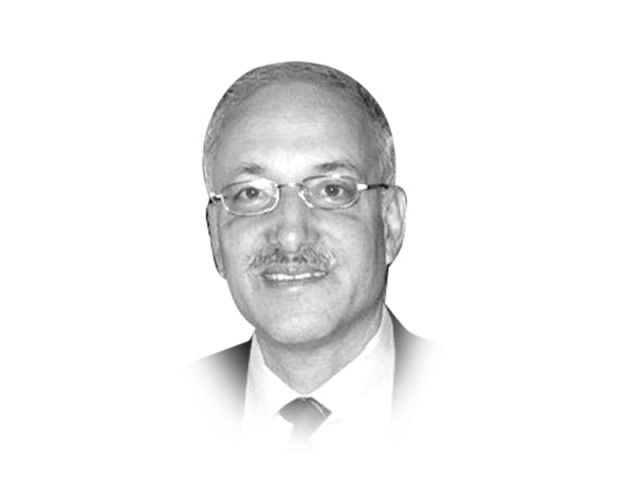Ethno-linguistic provinces
There can be at least three divisions of the Punjab: south one Siraiki; north one on Potohari and middle on Punjabi.

Ethno-linguistic provinces
But, even if we admit the truth of the cynic’s charges, the idea of dividing Pakistan into smaller provinces is a welcome one. I have not only expressed my support of the idea several times in the last 15 years but will bother the reader to refer to the conclusion of my book Language and Politics in Pakistan (1996). In this, I had stated that we need to divide provinces along ethno-linguistic lines. Such criteria cannot be applied to large cities which are multilingual and multiethnic. However, there can be at least three divisions of the Punjab: the southern one based on Siraiki; the northern one based on Potohari and the middle one on Punjabi. Of course, there are various other dialects of Punjabi but these are found in all major languages and one need not take them into consideration. Khyber-Pakhtunkhwa could gain the Pashto-speaking areas of Balochistan but would lose the Hindko-speaking parts to the Hazara Province, the Siraiki-speaking areas to the Siraiki province and the Khowar and other smaller language areas to yet another province. Balochistan, too, would lose some parts but would be compensated by a less divisive Baloch and Brahvi community which could unite more effectively into demanding its rights.
I had refrained from giving any solution for Sindh, although in 1995 Sindh was already a divided province. Karachi and other major cities were predominantly Urdu-speaking and the rural areas were Sindhi-speaking. Yet it seemed unjust to me that Sindh should have its cities separated from it because, at one time, Mujahirs had been allowed to concentrate in urban Sindh. I realised that this was not the fault of the Sindhis but then it was not the fault of the Mujahirs either. Since my aim is only to provide the greatest happiness to the greatest number of people and it was not clear to me which policy would achieve this in Sindh, I had given no solution at all. Indeed, precisely because of the difficulties involved, I had left the solution to this conundrum to the people of Sindh.
I still feel that it is the people of Sindh — and for that matter all provinces — who should be consulted if any readjustments of provincial boundaries are to be made. Yet, seeing the turf battles in Karachi over the last few years, I think it may be productive to give Karachi the status of a city-state or province. It should be a free port with its own administration, taxation and other services which would benefit Urdu-speakers, Pashto-speakers, Sindhi-speakers and others. Karachi is now a great Pashtun city also and if the Pashtuns are not given power in it, the turf battles will continue. It also belongs to Sindhis, Baloch, Punjabis and, of course, Mujahirs. Karachi is a den of criminals at present but it has the potential of becoming a new Singapore. To realise this potential, it may be useful to make it an autonomously governed city. I do not feel this solution could be applied to any other part of the province of Sindh but I think such a solution to the problem of Karachi may be worth considering for the stakeholders in Sindh and the centre.
What are the advantages of ethno-linguistic divisions of the country? Firstly, such a step will stem the rise of ethnicity which uses language in order to create a group so as to confront the centre. Secondly, it will make Punjab smaller and the complaints against that province — and the civil and military elite which is predominantly Punjabi — will be diluted. Thirdly, federating units will feel they have a stake in the system. This will appear to be far more just and satisfying to them than to be included as provinces, which are internally divided, while ethnic groups are, by definition, homogenous.
The most important thing to remember is that all ethnic and linguistic politics resolves around the questions of power and money. In volume 4 of A Global Dialogue on Federalism edited by Anwar Shah (2010), comparative perspectives on “fiscal federalism” are discussed. In some federal systems — like Australia, Germany, India, Malaysia, Nigeria, Russia, Spain and South Africa — the federal influence on federating units is strong. In Brazil, Canada, Switzerland and the US, it is weak. This means that the federating units have more flexibility to raise taxes and appropriate income than in the federations given in the first list. Now it so happens that the happiest and most stable federations are those in which the federating units have maximum fiscal autonomy. So if we want our country to be a stable and happy federation, we should not only divide it along ethno-linguistic lines but also give the federating units as much political and economic power as will give everyone a stake in preserving the federation.
Published in The Express Tribune, June 26th, 2011.














COMMENTS
Comments are moderated and generally will be posted if they are on-topic and not abusive.
For more information, please see our Comments FAQ